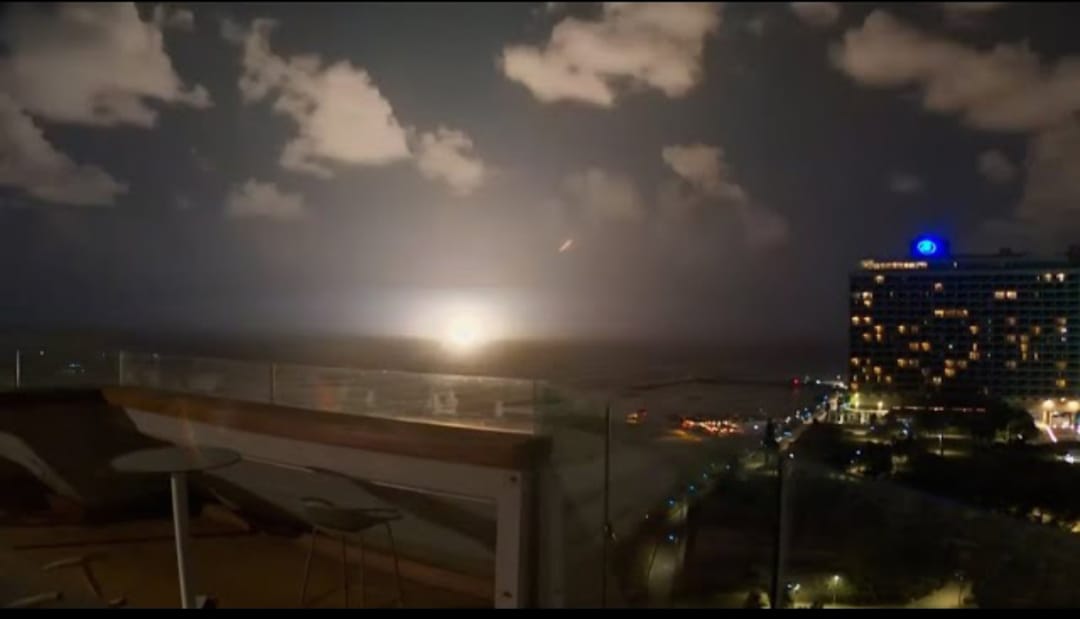Middle East Tensions Escalate as Israel Targets Iran’s Missile Infrastructure 1
1. Context: The ongoing hostilities between Iran and Israel
Iran’s backing of organizations Israel views as hostile, such as Hamas in Gaza and Hezbollah in Lebanon, is a major factor in the long-standing hostilities between Israel and Iran. Because it places Iranian forces and resources near Israel’s northern borders, Israel has seen Iran’s expanding military influence and presence in neighboring Syria as a direct danger to its security. This geopolitical rivalry is further complicated by the fact that Israel has continuously expressed concerns about Iran’s ballistic missile development, claiming it may be used to threaten Israeli land.
2. Current Escalation: Attacking Iran’s Missile System
According to sources, Israel has been actively targeting Iran’s missile capabilities in recent weeks. Iran frequently uses these areas as logistical hubs to transport and build missiles, hence these measures involve strikes on suspected missile bases and infrastructure within Syria and maybe Iraq. Disrupting Iran’s supply chain and its capacity to produce or employ missile technologies that could endanger Israeli security appears to be the main goal of Israel’s plan. This escalation demonstrates Israel’s determination to uphold what it refers to as the “red line”—a threshold beyond which it will not permit the unrestrained development of Iranian influence or weapons in the vicinity of its borders.
3. Strategic Consequences for Iran and Israel

Israel wants to undermine Iran’s offensive and deterrence capabilities in the area by attacking its missile-related facilities. A key component of Iran’s defense and regional influence strategy, its missile program enables it to back allies and put pressure on enemies without resorting to direct combat. Reversing this tactic is essential for Israel to preserve its security and establish its supremacy in the area. These steps, however, run the risk of inciting Iran to retaliate directly or through its proxies, which might start a chain reaction of escalation that could upend the Middle East as a whole.Middle East Tensions
4. Regional Responses and Potential Consequences

Regional powers in the Middle East are closely monitoring the developments between Israel and Iran. Concerned about Iran’s might and military might, nations like Saudi Arabia, the United Arab Emirates, and Bahrain might covertly back Israel’s activities while maintaining diplomatic neutrality or restraint in public. On the other hand, as possible locations for proxy wars, Iran’s heavily influenced countries like Iraq, Syria, and Lebanon might see heightened tensions and instability. Therefore, the entire area is at a precarious point since any major Iranian reaction could spark a larger conflict that could destabilize nearby nations.
5. Global Reactions: A World Powers’ Balancing Act
Major powers including the United States, Russia, and European countries are keeping a close eye on Israel’s actions and Iran’s possible reactions on the international scene. Israel’s longtime friend, the United States, may openly back Israel’s right to self-defense while cautioning against escalation. Russia, which has a working relationship with Iran and has established military cooperation with the Syrian government, must strike a difficult balance. To safeguard its interests in the area, particularly as it works to keep Syria stable, where it possesses important strategic assets, it is likely to urge moderation from all sides.
7. Conclusion: Navigating a Fragile Balance
The recent developments in the Middle East highlight the fragile balance that exists between regional and global powers, with Israel and Iran at the center. As Israel seeks to secure its borders and curb Iran’s influence, and Iran aims to maintain its strategic capabilities, the risk of conflict remains high. The international community’s role in advocating for restraint and supporting diplomatic efforts will be essential to prevent further instability in an volatile region.

Middle East Tensions

